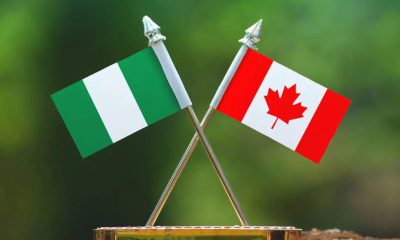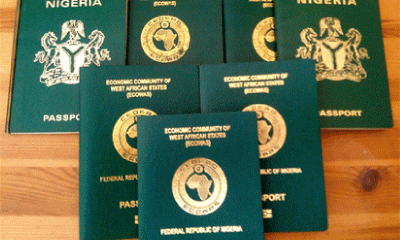Business
As FG blocks old Twitter app, Nigerians now tweet using VPN

- FG lacks capacity to enforce ban – Experts
Barely 12 hours after the Federal Government announced the indefinite suspension of popular social media platform, Twitter, in Nigeria, the microblogging service has ceased to work on the old app.
But smart people have since downloaded and switched over to new available apps, where they enjoy tweeting unhindered.
They are currently sharing on social media a list of such available Virtual Private Networks (VPNs) and they are Hide man, Turbo VPN, Private Tunnel, Surfeasy, Open VPN, Tor Guard, Proton VPN, Hotspot Shied, Private Internet Access and ZenMate.
VPN is a connection that allows users to establish a protected network connection when using public networks.
It helps users to protect their internet traffic and keep their identities private online.
By connecting to a secured VPN server, your internet traffic goes through an encrypted tunnel that nobody can see, including hackers, governments and your internet service provider.
Using it will help hide your internet protocol (IP) address — the unique number that identifies you and your location in the world.
One of the benefits of using VPN is that it changes your IP address. This implies that with a new IP address — which can be that of any country of your choice — you can use Twitter as if you’re in your selected country without restriction.
To do this, all that is needed is to change the location of the VPN to any country of your choice and connect to that country’s VPN.
And should the FG be contemplating a clampdown to block those available apps, Information and Communications Technology (ICT) experts say Nigeria does have the capability to enforce the ‘indefinite suspension’ of Twitter on the people, groups and businesses in Nigeria.
Indeed, they assert that the FG lacks a central information dissemination system that is required to make the ban work.
President, Association of Telecommunications Companies of Nigeria (ATCON), Ikechukwu Nnamani said he received the news with shock and was trying to study the situation to determine what level of intervention is required.
Nnamani who is also the Founder/CEO, Medallion Communications Limited, an interconnect clearinghouse and co-location data service company, however, hinted that the Association is already in talks with relevant government agencies to see how the issue can be resolved without any backlash.
Immediate past President of ATCON, Olusola Teniola, said, “In the case of Nigeria, it is very difficult to enforce because Twitter doesn’t have a physical office or presence in Nigeria.
“Their office is in Ghana. What obtains is that it is the local technology companies that provide access to their services which people access here.
“Even though the government is desirous of banning the activities of Twitter, it is powerless in this instance because there are several ways to access Twitter.
“I think the government decision would be weakened by the fact there are several other ways to bypass the ban and easily access their (Twitter) service. So there is really no cause for alarm. The digital world cannot be controlled, because it is a global platform.”
Teniola also said, “From the look of things, it is very clear that the government is trying to regulate the internet and social media.
“Unlike China, which is a communist country and has a central information system, this is not possible in Nigeria.
“As we speak, Twitter is still being accessed; it is not inoperative as we speak. So I think it is a mere wishful thinking on the part of government.”
A digital media expert, Mr Akeem Baiyewu, described the suspension as an exercise in futility.
He said the ban on Twitter was tantamount to stopping the wind from blowing.
On what is the likely socioeconomic backlash arising from the ban, Baiyewu said, “It is a mere empty threat by the government and cannot stand the test of time.
“There is no question of whether services would be disrupted. No. People should go about their businesses without any let or hindrance because the ban can’t work here.”
Expatiating, he said: “The whole world is going global and transparency comes with democracy. In today’s world, if you violate any rule, you face the consequence.
“Twitter didn’t impose its rule on the spur of the moment. It has its own rules of engagements which anyone ready to access their services must adhere to. Twitter didn’t force the government to access its services and cannot expect preferential treatment from the social media platform. They (Twitter) made their rules and the federal government joined voluntarily.
“According to Twitter, there was a violation of its rules by the top hierarchy of the Federal Government and it had to enforce its rule. So, I don’t think Twitter committed any infraction whatsoever.”
How Myanmar enforced Twitter, Instagram ban
Myanmar which joined the likes of China, North Korea and others in banning the social media first blocked Facebook and shortly afterwards ordered mobile networks and internet service providers to block Twitter and Facebook-owned Instagram.
The Southeast Asian country’s military seized power in a coup in February, detaining its civilian leader Aung San Suu Kyi along with other government officials.
Facebook users had reportedly been using the social media platform to protest the coup, sharing photos of themselves giving the three-finger salute that’s become associated with resistance in the area.
“All mobile operators, international gateways and internet service providers in Myanmar received a directive on 5 February 2021 from the Myanmar Ministry of Transport and Communications (MoTC) to, until further notice, block the social media platforms Twitter and Instagram,” Norwegian telecom company Telenor said in a statement late yesterday. The company provides mobile services in Myanmar.
Buhari/Twitter face-off
Minister of Information and Culture, Lai Mohammed, in announcing the ban on Twitter, said the government was forced to act because of “the persistent use of the platform for activities that are capable of undermining Nigeria’s corporate existence.”
The sanction of the social media service has sparked widespread outrage, with many Nigerians, including celebrities, condemning the move.
Also reacting, the microblogging site described the directive as “deeply concerning.”
It stated, “The announcement made by the Nigerian Government that they have suspended Twitter’s operations in Nigeria is deeply concerning.
“We’re investigating and will provide updates when we know more.”
The suspension of Twitter operations in Nigeria announced on Friday was a culmination of events that had happened this past week.
Twitter deleted tweets and videos of President Muhammadu Buhari making threats of punishment to a sect called IPOB in the South-East part of the country after he blamed them for attacks on government buildings.
He then made a reference to Nigeria’s civil war events in the 1960s, which seemed to offend many Nigerians.
Buhari, who was the country’s Head of State in the 1980s and served in the army against secessionists, said young Nigerians in the South East were too young to remember the horrible events that occurred during the war.
According to him, the activities of the present-day secessionists are likely headed toward war; hence, it was proactive to stop them beforehand with force.
“Those of us in the fields for 30 months, who went through the war, will treat them in the language they understand,” he said.
Twitter chose to delete the tweet, which it said violated its abusive behaviour policy and several calls by Nigerians to take it down.
Twitter also suspended the President’s account, leaving it in a “read-only mode” for 12 hours.
Following its decision, Mohammed called out the social media giant by saying its decision was biased and said the President had a right to express his thoughts on events that affect the country.
He also raised suspicion about the platform’s intention in the country. “Twitter may have its own rules; it’s not the universal rule. If Mr President anywhere in the world feels very bad and concerned about a situation, he is free to express such views… The mission of Twitter in Nigeria is very, very suspect,” he said.
In a retaliation act, Nigeria has proceeded to suspend the platform’s operations in the country. While Twitter doesn’t have any offices in the country, this announcement can still play out.
-Additional reports by TheCable and The Nation
Auto
CFAO subsidiary LOXEA unveils BYD electric vehicles in Nigeria
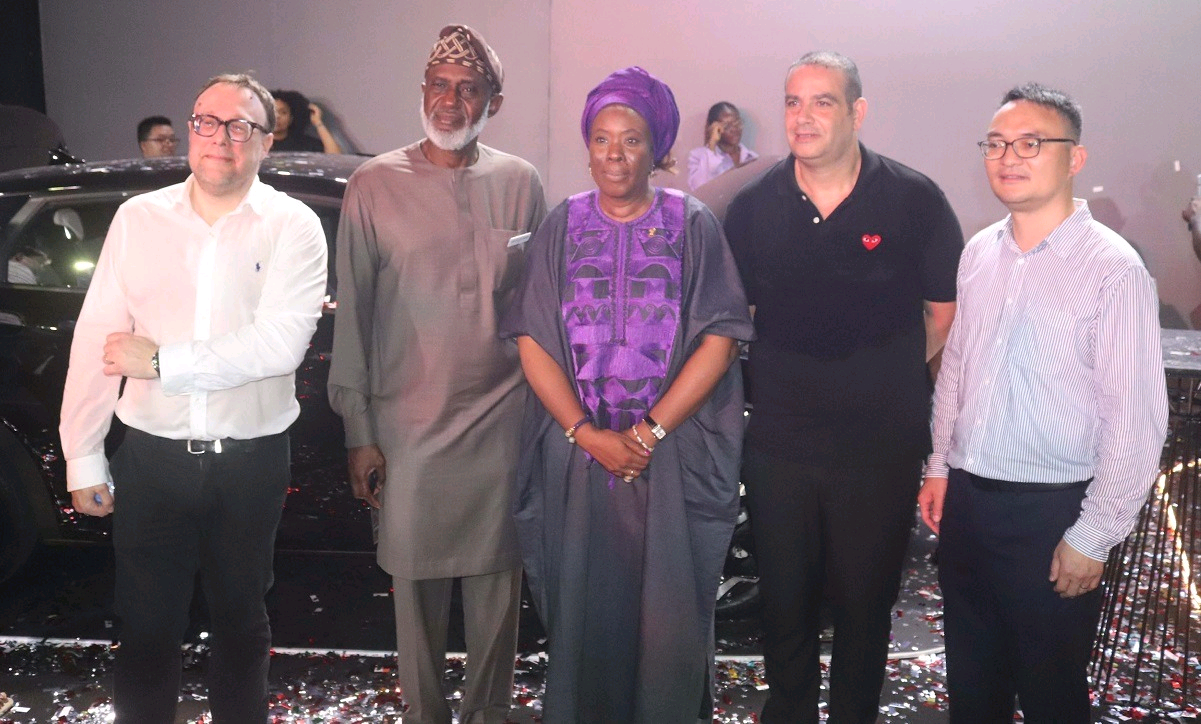
CFAO subsidiary LOXEA unveils BYD electric vehicles in Nigeria
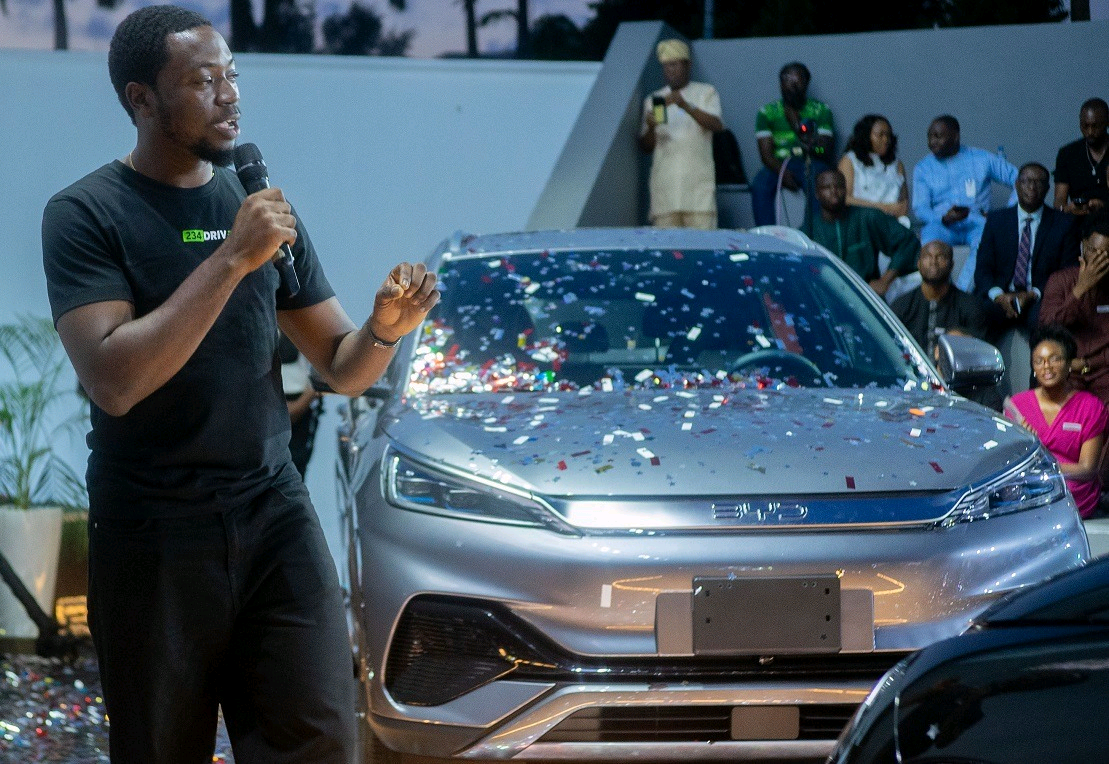
A subsidiary of CFAO Mobility, LOXEA Nigeria, has introduced the BYD brand of electric vehicles to the Nigerian market.
LOXEA has thus become the pioneer in bringing the renowned electric vehicles (EVs) manufactured by BYD (Build Your Dreams) into the country.
BYD is a high-tech multinational company and the world leader in electric and plug-in hybrid vehicles.
“As a Fortune Global 500 enterprise, BYD relentlessly innovates to create a sustainable future,” said the automaker.
“In November 2024, BYD becomes the first company in the world to achieve the milestone with the roll-off of its 10-millionth NEV.
“BYD achieves 4.27 million new energy vehicle sales in 2024, claiming the global sales champion in the third consecutive year.”
Managing Director of LOXEA Nigeria, Mr. Mehdi Slimani, stated, “We are proud to distribute this type of electric vehicle and all its associated services.
“Our upcoming showroom in Victoria Island, Lagos will be a place dedicated to the discovery of BYD vehicles, combining modernity, comfort, and economy of use. “It is very important for CFAO Mobility in Nigeria to participate in this way in the country’s energy transition and support our customers who wish to make the switch to electric.”
Chief Executive Officer of CFAO Mobility, Marc Hirschfeld, spoke on the importance of this launch for both the company and the country, saying, “BYD is one of the world’s leading manufacturers of electric vehicles, with a level of innovation know-how that now matches the expectations of our markets in Africa.
“A whole new ecosystem has to be designed around mobility in African cities.
“This applies not only to individual and corporate customers, but also to stakeholders including urban public transport networks and government agencies.
LOXEA specialises in providing innovative mobility solutions across Africa.
With a commitment to sustainability and excellence, it delivers high-quality mobility services, from electric vehicle leasing to fleet management and infrastructure support.
LOXEA is a leading player in innovative mobility solutions in Africa, offering clients a range of 100% electric vehicles from BYD.
As a pioneer in the deployment of electric vehicle solutions across the continent, LOXEA is bringing to Nigeria a comprehensive suite of services associated with electric vehicles.
This includes the installation of electric charging stations, vehicle maintenance, repair services, and the provision of spare parts.
In addition to providing an inaugural charging station at the upcoming LOXEA Victoria Island showroom, the company is also offering an adaptable solution that allows customers to charge their EVs conveniently at home.
The company says more information on this can be obtained from its website: https://www.byd-nigeria.com/ .
Business
Petrol price rises to N935 in Lagos
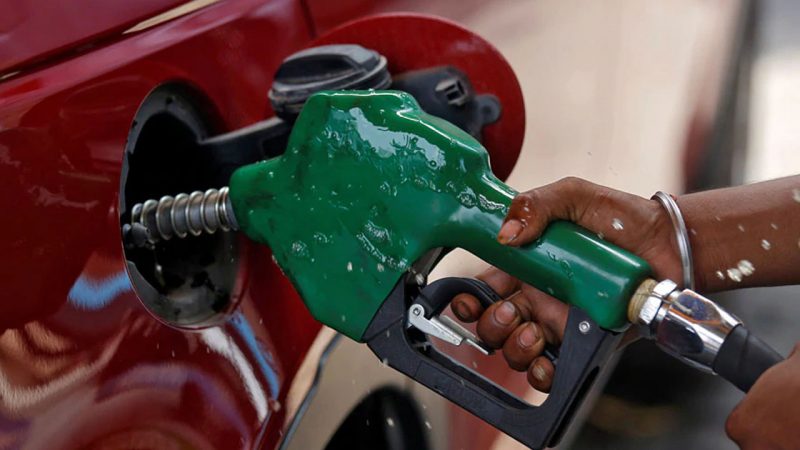
Petrol price rises to N935 in Lagos
Petrol marketers across the Lagos metropolis at the weekend raised the pump price of the commodity to between N925 per litre and N935 per litre.
This is in response to the increase in the landing cost of petrol, the stoppage by Dangote Refinery of the sales of the commodity in naira about two weeks ago and the delay in conclusion of negotiation on the naira for crude policy.
Last Monday, the landing cost of the commodity rose to N843.28 per litre from a previous N797 per litre a forthnight ago.
This increase represents an addition of N46 per litre to the landing cost of petrol.
Some filling stations like TotalEnergies sold at N935 per litre; MRS, N925.
ARA is a crucial global oil and biofuel hub known for its physical infrastructure, pricing benchmarks, and significant oil consumption.
It added that seasonal refinery maintenance across Europe and a recent fire at the Falconara refinery in Italy have further restricted supply, adding to market tightness and price volatility.
The Association said the foreign exchange rate remained fairly stable, with minimal fluctuations observed over recent periods.
Therefore, the landing cost of petrol, being fundamentally influenced by these elements, is likely to change several times intra-day.
It advised that savings can be achieved through negotiations, access to foreign exchange, and logistics efficiencies, for example, by eliminating Ship to ship (STS) transfer where possible or receiving larger cargos.
MEMAN explained that the landing cost into Apapa/ASPM Jetty is calculated based on the following assumptions: exchange rate, finance charges at 32 per cent per annum for 30 days; STS and related charges; NIMASA charges at two per cent of local STS; NMDPRA at 0.5 per cent MDGIF; NPA and VAT charges covering towage, berthage/mooring, ship dues, cargo dues, contingency, fire coverage, agency fee; other costs at N2 per litre.
Petrol price rises to N935 in Lagos
Business
Dangote Refinery: MRS, other filling stations increase petrol price
Dangote Refinery: MRS, other filling stations increase petrol price
The price of petrol has surged to N930 per litre in Lagos and N960 in northern states, following the recent suspension of naira payments for crude oil by the Dangote refinery.
MRS filling stations implemented the new pricing structure on March 28, 2025, marking a N70 increase from the previous rate of N860 in Lagos and N80 higher than the former N880 in the North.
Other fuel retailers have also adjusted their prices, with NIPCO reportedly selling at N930 per litre in Magboro, Ogun State, on Saturday.
According to MRS Oil & Gas, trucks will load products from its Lagos depot and distribute them across the country at varying costs.
The company’s latest pricing document confirms that Lagos has the lowest fuel rate, while northern states face the highest prices. However, the company did not specify whether it sourced its supply from the Dangote refinery.
Under the revised price framework, petrol now costs N930 per litre in Lagos, N940 in other South-West states, and N960 in the South-South and South-East regions, including Edo, Abia, Akwa Ibom, Bayelsa, Rivers, Cross River, and Enugu.
READ ALSO:
- Ex-Rivers HoS wife cries for help over husband’s safety
- Fubara reacts as Ex-HOS, Nwaeke accuses him of bombing oil pipelines, Rivers Assembly
- Natasha: Emmanuel Uduaghan threatens to sue Senator Nwaebonyi
In the North, Abuja, Kaduna, Benue, Kogi, Niger, Sokoto, Kebbi, and Nasarawa will pay N950 per litre, while Zamfara, Kano, Jos, Bauchi, Taraba, Adamawa, Borno, Katsina, Jigawa, Gombe, and Yobe will pay N960.
The Free Carrier Agreement (FCA) price, which determines how much marketers pay before reselling fuel, also differs by region. Lagos has the lowest FCA price at N905 per litre, whereas states like Borno, Taraba, Adamawa, and Yobe have FCA prices around N888 per litre.
The recent suspension of the naira-for-crude initiative by the Dangote refinery was attributed to discrepancies in crude oil allocation. Sources indicate that the Nigerian National Petroleum Company Limited (NNPCL) allocated large volumes of crude to foreign creditors to settle outstanding loans, making it difficult to sustain local transactions in naira.
As a result, independent fuel importers have taken advantage of the situation, increasing depot prices. Industry analysts warn that the rising petrol costs could drive up transportation fares and the prices of goods and services.
Experts suggest that prices may stabilize once the Dangote refinery secures a reliable crude oil supply from NNPCL and resumes selling in naira. Until then, consumers across the country will have to contend with higher fuel costs.
Dangote Refinery: MRS, other filling stations increase petrol price
(PUNCH)
-

 Uncategorized2 days ago
Uncategorized2 days agoBreaking: Moon sighted in Saudi, UAE, others, Eid-Fitr holds Sunday
-

 metro2 days ago
metro2 days agoRamadan ends in Nigeria, Sultan announces March 30 as Eid-el-Fitr
-
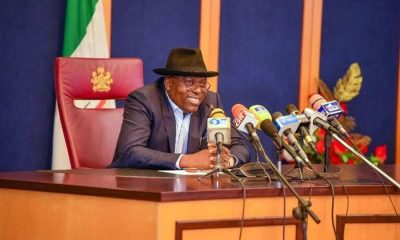
 metro3 days ago
metro3 days agoFubara reacts as Ex-HOS, Nwaeke accuses him of bombing oil pipelines, Rivers Assembly
-

 Opinion3 days ago
Opinion3 days agoBarbaric mass burning of innocents in Edo, by Farooq Kperogi
-

 metro2 days ago
metro2 days agoEmbrace environmental sanitation during Eid-Fitr, LAGESC boss tells Lagosians
-
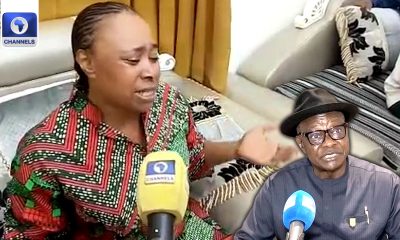
 metro3 days ago
metro3 days agoEx-Rivers HoS wife cries for help over husband’s safety
-
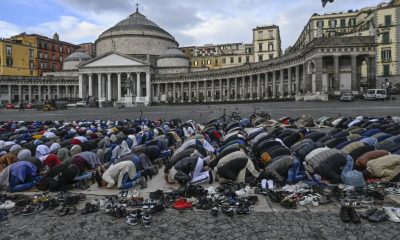
 International18 hours ago
International18 hours agoIn pictures: Eid celebrations around the world
-
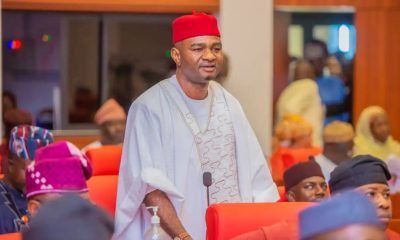
 metro3 days ago
metro3 days agoNatasha: Emmanuel Uduaghan threatens to sue Senator Nwaebonyi





